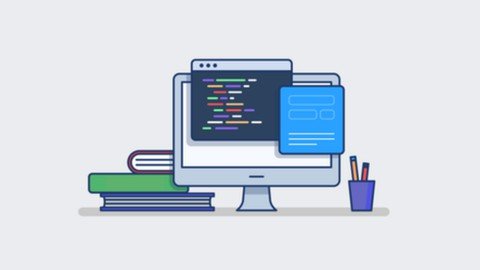
Published 7/2022
MP4 | Video: h264, 1280×720 | Audio: AAC, 44.1 KHz
Language: English | Size: 1.32 GB | Duration: 4h 11m
Learn Basic and Fundamental of Software Engineering
What you’ll learn
Software Engineering Basics
Software Developments Life Cycles and Models
Factors and cost estimation
Requirement Engineering
Software Testing
Agile
Software Quality
Quality Standards and Principles
Risk Management
Software Configuration
Requirements
No prior knowledge needed you will learn everything you need to know
You need a mobile, Tablet or Laptop
Description
Well come to the Software Engineering course with certification This course is for anyone who wants to learn software and its processes or Who is interested in computer science and for everyone who is enrolled in the computer science field This course is going to help students in their academic as well as competitive examinations. I have made the use of illustration, smart figures, and animations everything with examples, I have designed this course in such an easy-to-understand manner that even if you know nothing about the software you would be able to understand and grape the concepts. So check out some lectures below and I’m pretty much sure you will like this course, do enroll.Well come to the Software Engineering course with certification This course is for anyone who wants to learn software and its processes or Who is interested in computer science and for everyone who is enrolled in the computer science field This course is going to help students in their academic as well as competitive examinations. I have made the use of illustration, smart figures, and animations everything with examples, I have designed this course in such an easy-to-understand manner that even if you know nothing about the software you would be able to understand and grape the concepts. So check out some lectures below and I’m pretty much sure you will like this course, do enroll.
Overview
Section 1: Introduction
Lecture 1 Introduction
Section 2: Before We Start
Lecture 2 Before We Start
Section 3: Software Engineering
Lecture 3 Software Engineering
Lecture 4 Software Development Life Cycle (SDLC)
Lecture 5 Software Development Life Cycle Detailed
Lecture 6 3.1 Software Development Life Cycle (SDLC) Example
Lecture 7 Software Development Models
Lecture 8 Waterfall Model
Lecture 9 Iterative Waterfall Model
Lecture 10 Prototype Model
Lecture 11 Incremental Model
Lecture 12 Spiral Model
Lecture 13 Rapid Application Development
Lecture 14 V- Shaped Model
Lecture 15 Model Comparison
Lecture 16 Software Processes
Lecture 17 Fourth Generation Techniques
Section 4: Factors
Lecture 18 Factors in Software Engineering
Lecture 19 Software vs Hardware Cost
Lecture 20 Measurement Basics
Lecture 21 LOC LLOC DSI KDSI
Lecture 22 Classification of Softwares
Lecture 23 Software Size Factors
Lecture 24 Effort and Development Time
Lecture 25 Software Cost Factors
Lecture 26 Quality and Productivity Factors
Lecture 27 Management Issues
Section 5: Cost Estimation in Software
Lecture 28 Cost Estimation in Software
Lecture 29 Basic COCOMO
Lecture 30 Intermediate COCOMO
Lecture 31 Advanced COCOMO
Lecture 32 Staffing Level Estimation
Lecture 33 Software Maintenance Cost
Section 6: Requirement Engineering
Lecture 34 Requirement Engineering
Lecture 35 SRS Document
Lecture 36 Characteristic of Good SRS Document
Lecture 37 Formal Specification
Lecture 38 Algebraic and Model Based Formal Techniques
Section 7: Software Testing
Lecture 39 Software Testing
Lecture 40 Static vs Dynamic Testing
Lecture 41 Review and Its Types
Lecture 42 Static Analysis
Lecture 43 Cyclomatic Complexity
Lecture 44 Black Box Testing
Lecture 45 White Box Testing
Lecture 46 Unit Integration and System Testing
Section 8: Software Quality
Lecture 47 Software Quality
Lecture 48 Software Quality Factors
Lecture 49 Software Quality Assurance
Lecture 50 Software Quality Control
Lecture 51 Difference Between SQA and SQC
Section 9: ISO (International Organization for Standardization)
Lecture 52 ISO
Lecture 53 ISO 9001
Lecture 54 ISO 9126
Lecture 55 CMM (Capability Maturity Model)
Lecture 56 TQM (Total Quality Management)
Lecture 57 TQM Principles
Lecture 58 Six Sigma
Section 10: Risk
Lecture 59 Risk
Lecture 60 Risk Management
Section 11: Software Configuration
Lecture 61 Software Configuration
Section 12: Agile
Lecture 62 Agile
Lecture 63 Course Completion
Anyone who wants to learn Software Engineering,Beginner who are curious about Software Engineering and its processes,Computer Science Students
Password/解压密码www.tbtos.com
转载请注明:0daytown » Software Engineering 2022